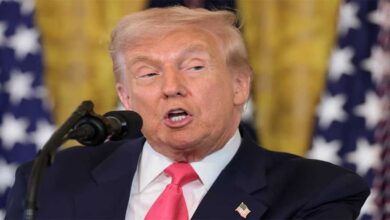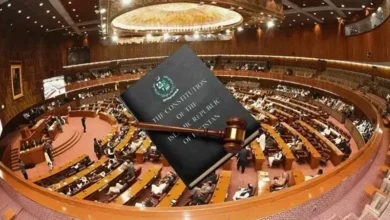The United States and Ukraine signed a long-anticipated agreement granting Washington preferential access to Ukraine’s critical mineral resources, a move heavily promoted by US President Donald Trump and seen as pivotal to Kyiv’s post-war reconstruction and future US military assistance.
The deal, finalised in Washington after months of arduous negotiations, includes the creation of a joint investment fund dedicated to Ukraine’s economic recovery and reconstruction efforts. Both governments hailed the agreement as a symbol of enduring partnership and mutual strategic interest, particularly as Ukraine continues to grapple with Russia’s ongoing military aggression.
US Treasury Secretary Scott Bessent and Ukraine’s First Deputy Prime Minister Yulia Svyrydenko signed the accord during a formal ceremony, with the Treasury later posting an official photograph on social media platform X. In its statement, the US Treasury said the deal “clearly signals the Trump Administration’s commitment to a free, sovereign, prosperous Ukraine,” while recognising the “significant financial and material support” provided by the American people since Russia’s full-scale invasion in February 2022.
Access to rare earths, No repayment for past aid
The agreement gives the US access to new Ukrainian projects involving rare earth minerals, graphite, titanium, and lithium—materials vital for renewable energy, military technology, and consumer electronics. Global supply of these minerals is currently dominated by China, a key US rival in an ongoing trade war initiated by President Trump’s tariff policies.
However, Ukrainian officials emphasised that all decisions regarding extraction would remain under Kyiv’s jurisdiction. “The subsoil remains the property of Ukraine,” said Svyrydenko, adding that Kyiv retains full sovereignty over what, where, and how to extract resources.
Significantly, the draft agreement seen by Reuters confirmed that Ukraine would not be required to repay the US for military assistance provided during the war—reportedly totalling more than €64 billion ($72 billion) according to Germany’s Kiel Institute. This was a key sticking point during negotiations, with Washington initially pushing for some form of reimbursement.
While the agreement does not include concrete US security guarantees—a top Ukrainian priority—it does open the door for further American assistance. Svyrydenko indicated that air defence systems could be among the future provisions, though US officials have not publicly confirmed this.
Delicate diplomatic balancing act
The minerals deal comes at a crucial time for Ukraine as it seeks to consolidate international support and rebuild from the devastation wrought by Russia’s invasion. Ukrainian President Volodymyr Zelensky has framed the agreement as both an economic lifeline and a diplomatic reset with the Trump administration, which has adopted a more ambivalent stance toward Kyiv compared to previous US leadership.
Negotiations for the deal were often tense and, at one point, nearly collapsed. A US official familiar with the talks told reporters that Ukraine attempted to alter some of the terms at the last minute, prompting frustration in Washington. Concerns over transparency, governance of the fund, and traceability of resources were among the key issues raised.
The final breakthrough reportedly came after an in-person meeting between Trump and Zelensky on the sidelines of Pope Francis’s funeral. Trump later told NewsNation that he had urged Zelensky to finalise the deal, warning of Russia’s overwhelming military strength and describing Ukraine’s mineral wealth as “a big asset.”
“We’ve put billions into Ukraine,” Trump said. “So I went to them and said, ‘Look, we got to get rare earth.’ They have great rare earth… things that a lot of places don’t have.”
Trump also portrayed the deal as a prerequisite for any future security assurances from Washington. “It’s a very good thing if we can produce a deal that you sign it,” he told Zelensky, according to his remarks.
Equal partnership, long-term vision
Deputy Prime Minister Svyrydenko described the agreement as a 50:50 partnership between the two countries, with Ukraine retaining ownership of all resources involved. She also emphasised that the accord aligns with Ukraine’s constitutional requirements and its bid for European Union membership.











